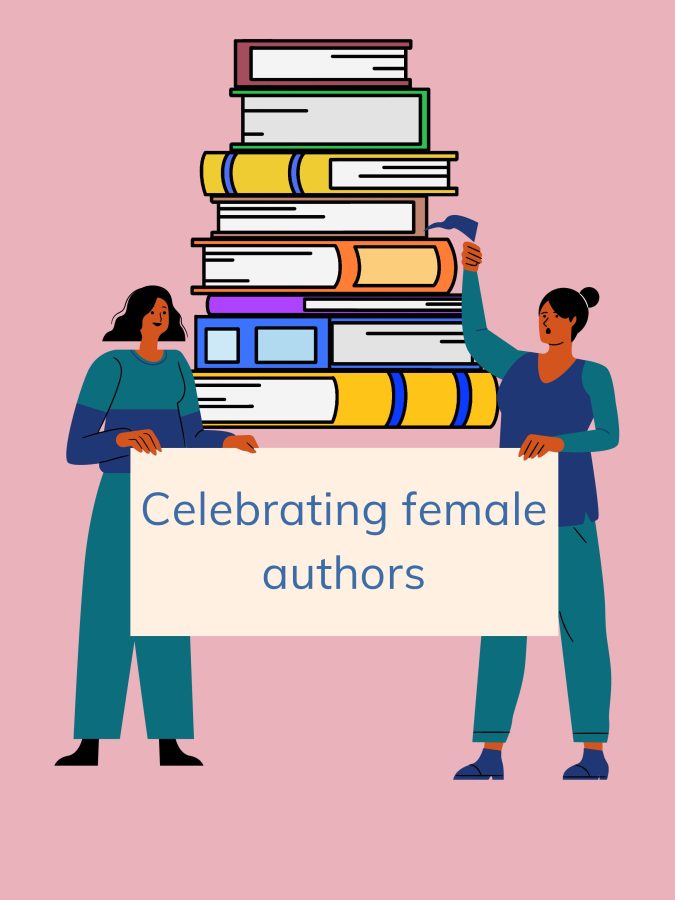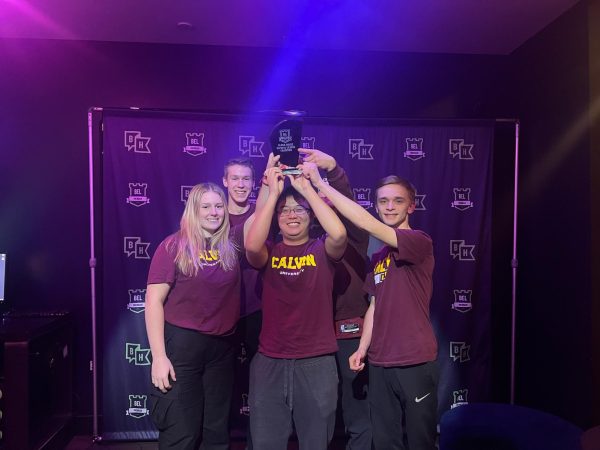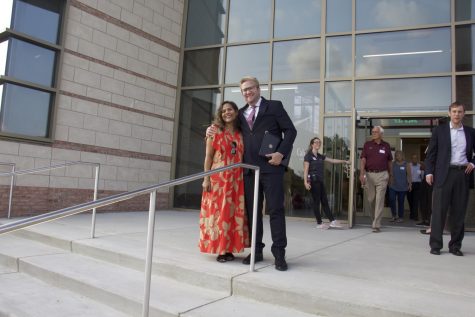What to read this Women’s History Month: Book recommendations by female professors
In honor of Women’s History Month, Chimes reached out to a variety of female Calvin professors for book recommendations centered on women and women’s issues. This list compiles both fiction and nonfiction, as well as a podcast which highlights women in different fields ranging from climate change, Christianity and medicine. The variety of fields portrayed in this selection show the different areas where women are represented. The fiction suggestions place female characters in a variety of roles that provide female audiences with empowering representation, whereas the nonfiction suggestions do the same but with real-life examples of women. The books they have suggested also focus on the importance of intersectionality with gender, whether that be with race or sexual orientation.
Debra Rienstra (English):
“All We Can Save: Truth, Courage, and Solutions for the Climate Crisis” edited by Ayana Elizabeth Johnson and Katharine K. Wilkinson
“This collection of essays represents a who’s who of women leaders in the climate movement, with excellent representation across age, ethnicity and a huge range of disciplines and expertise areas. Women’s leadership, wisdom and savvy in the climate movement is a marvelous thing to behold.”
“Mothers of Invention” podcast
“This podcast ran from 2018-2020 with the tagline ‘Climate change is a man-made problem with feminist solutions.’ The host is Mary Robinson, former president of Ireland, with help from comedian Maeve Higgins and producer Thimali Kodikara. The episodes feature ‘stories of black, brown and indigenous women and girls who have been innovating from the front lines of climate change for generations — all over the world!’ I’ve found few sources more informative and inspiring about climate solutions.”
Jolene Vos-Camy (French):
“The Heptameron” by Marguerite de Navarre
“Written in French by the queen of Navarre in the 16th century, ‘The Heptameron’ is a collection of short stories told by a group of travelers — men and women — as they wait for the roads to become passable again high in a mountain valley. The travelers who narrate the stories discuss them and give very different opinions on how the stories should be interpreted. In addition to being highly entertaining and sometimes scandalous, these stories all tell us something about human nature and relationships between men and women.”
Kristin Kobes Du Mez (History):
“Charity & Sylvia: A Same-Sex Marriage in Early America” by Rachel Hope Cleves
“A carefully researched account of how two nineteenth-century Christian women navigated their same-sex relationship in the context of their faith, their families and their community. Cleves ‘turns conventional notions of same-sex marriage on their head, and reveals early America to be a place both more diverse and more accommodating than modern society might imagine,’ while also showing how Charity and Sylvia grappled with theological traditions proscribing same-sex relationships.”
“The Making of Biblical Womanhood: How the Subjugation of Women Became Gospel Truth” by Beth Allison Barr
“If God Still Breathes, Why Can’t I? Black Lives Matter & Biblical Authority” by Angela N. Parker
“Until I Am Free: Fannie Lou Hamer’s Enduring Message to America” by Keisha N. Blain
“The Doctors Blackwell: How Two Pioneering Sisters Brought Medicine to Women– and Women to Medicine” by Janice P. Nimura
“All That She Carried: The Journey of Ashley’s Sack, a Black Family Keepsake” by Tiya Miles
Linda Naranjo-Huebl (English):
“The Color Purple” by Alice Walker
“A young black woman in the rural South writes to God, her only eligible correspondent, of her traumatic life so heartbreaking that overcoming seems impossible. Her world widens as she develops relationships with strong women in her journey of self-realization. As she and her community grow in love and hope, so do the readers. Walker’s womanism is full force here and you will learn what she means when she says, ‘womanist is to feminist as purple is to lavender.’”
“The Hidden Hand” by E.D.E.N. Southworth
“The Last Report on the Miracles at Little No Horse” by Louise Erdrich
“Woman at Point Zero” by Nawal El Saadawi
Sara Dekker (Communications):
“Becoming Elisabeth Elliot” by Ellen Vaughn
“This is a biography written about Elisabeth (Betty) based on her years and years of personal journals. She is so open about her faith struggles and personal struggles as well as her incredible faith in God’s mercy and the power of forgiveness. Most know her name from the tragic events that killed her husband but what readers may not know is that she’s a gifted linguist. I learned so much about the meticulous process of learning the language of the Amazonian tribe she was ultimately able to reach.”
Tracy Kuperus (Political Science):
“Purple Hibiscus” by Chimamanda Ngozi Adichie
“‘Purple Hibiscus’ is a beautifully written novel from one of the African continent’s finest authors. Adiche describes the emotional turmoil and oppression experienced by a young girl at the hands of her tyrannical father, an authority figure who hypocritically upholds religious tradition in the family’s community and promotes democracy in Nigeria. In the end, freedom is won, but at significant cost.”
“All God’s Children Need Traveling Shoes” and “I Know Why the Caged Bird Sings” by Maya Angelou
“O Pioneers!” by Willa Cather
“Having People, Having Heart: Charity, Sustainable Development, and Problems of Dependence in Central Uganda” by China Scherz
“Help, Thanks, Wow: The Three Essential Prayers” or “Operating Instructions: A Journal of My Son’s First Year” by Anne Lamott
“Jesus and John Wayne: How White Evangelicals Corrupted a Faith and Fractured a Nation” by Kristin Kobes Du Mez
“Mighty be our Powers: How Sisterhood, Prayer, and Sex Changed a Nation at War” by Leymah Gbowee









